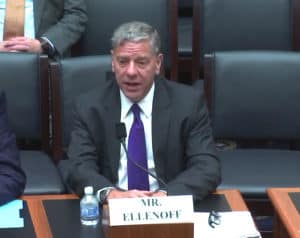
As widely anticipated, the Securities and Exchange Commission (SEC) updated the definition of an Accredited Investor expanding the rule by adding certain sophistication criteria. The current definition defines an individual who earns over $200,000 a year ($300,000 if married) as accredited. If an individual has a net worth of over $1 million, minus the value of a primary residence, they are deemed accredited as well.
Without removing the wealth hurdle, the Commission amended the rule. The summary of the update is as follows:
- add a new category to the definition that permits natural persons to qualify as accredited investors based on certain professional certifications, designations or credentials or other credentials issued by an accredited educational institution, which the Commission may designate from time to time by order. In conjunction with the adoption of the amendments, the Commission designated by order holders in good standing of the Series 7, Series 65, and Series 82 licenses as qualifying natural persons. This approach provides the Commission with flexibility to reevaluate or add certifications, designations, or credentials in the future. Members of the public may wish to propose for the Commission’s consideration additional certifications, designations or credentials that satisfy the attributes set out in the new rule;
- include as accredited investors, with respect to investments in a private fund, natural persons who are “knowledgeable employees” of the fund;
- clarify that limited liability companies with $5 million in assets may be accredited investors and add SEC- and state-registered investment advisers, exempt reporting advisers, and rural business investment companies (RBICs) to the list of entities that may qualify;
- add a new category for any entity, including Indian tribes, governmental bodies, funds, and entities organized under the laws of foreign countries, that own “investments,” as defined in Rule 2a51-1(b) under the Investment Company Act, in excess of $5 million and that was not formed for the specific purpose of investing in the securities offered;
- add “family offices” with at least $5 million in assets under management and their “family clients,” as each term is defined under the Investment Advisers Act; and
- add the term “spousal equivalent” to the accredited investor definition, so that spousal equivalents may pool their finances for the purpose of qualifying as accredited investors.
In prepared statements, each Commissioner expressed their sentiment regarding the amendments.
Chairman Jay Clayton stated:
“Today, the Commission adopted final rules to modernize and add much needed flexibility to the definition of “accredited investor” by adding new categories of qualifying individuals and entities that have demonstrated financial sophistication such that they should not be excluded from the very large, multifaceted and important private capital markets. The private capital markets are important to investors and issuers of various types, as well as our economy more generally. The accredited investor definition is the principal test for investor participation in significant segments of our private capital markets.”
Chair Clayton pointed to the fact that the use of income or wealth as the exclusive proxy for an individual’s financial sophistication and ability to assess and bear risk has long been unsatisfactory.
“Individual investors who do not meet the wealth tests, but who clearly are financially sophisticated enough to understand the risks of participating in unregistered offerings, are denied the opportunity to invest in our private markets.”
Commissioner Hester Peirce, a longtime supporter of Fintech innovation, called the update a “cautious expansion” of the current rule.
“A person’s economic status may demonstrate an ability to withstand losses, but it certainly does not demonstrate financial sophistication. The result of pretending that wealth is a good measure of sophistication is a standard that discriminates against financially sophisticated, lower-income and net worth Americans. These Americans cannot use their experience, local knowledge, education, and investing acumen to build a balanced investment portfolio, to maximize the nest eggs they pass on to their children, or to invest in their own communities.”
Commissioner Peirce posited that perhaps qualifying an individual that has completed two investing-related courses from any accredited college or university should be a proxy.
Commissioner Elad Roisman echoed Peirce’s sentiments calling the update “first steps” expressing his opinion their work is not yet done:
“… our rules have only allowed people of means to weigh these risks against the potential benefits of investing. In other words, only the wealthiest are allowed this level of control over their own money in the securities markets. These rules originated from good intentions; they were designed to protect smaller investors from exposure to loss in private markets that were far smaller and much different than they are today. Nevertheless, I have long advocated that such a system is fundamentally unfair, unequal, and unjustified. As I have previously stated, wealth is a crude measure of a person’s ability to make financial decisions.”
Commissioners Allison Herren Lee and Caroline Crenshaw joined in a dissenting statement claiming the update lacked regard for the risks individual investors may face and without sufficient data or analysis. These two Commissioners also wanted the current wealth metric indexed to inflation:
“Unfortunately, we cannot support the policy choices made by the Commission majority today because they fail to ensure that the accredited investor definition functions effectively to protect vulnerable investors, fail to acknowledge and analyze existing data revealing the risks these choices pose for investors, particularly seniors, and fail, once again, to address the lack of data regarding private markets more broadly. We respectfully dissent.”
 Douglass Ellenoff, the Managing Partner of New York-based law firm of Ellenoff, Grossman & Schole, and longtime crowdfunding advocate, applauded the update:
Douglass Ellenoff, the Managing Partner of New York-based law firm of Ellenoff, Grossman & Schole, and longtime crowdfunding advocate, applauded the update:
“Today’s announcement by the SEC that they are modernizing the definition of who qualifies to be an Accredited Investor- to include numerous other classifications of individuals and entities is an extremely welcome development and will facilitate capital formation for companies and give access to potential investors who were previously denied.”
Jon Medved, CEO and founder of OurCrowd – a global crowdfunding platform that offers securities under Reg D, shared his perspective:
“Big day for investors when the SEC for the first time in 35 years expands the categories for ‘accredited investors.’ With the private markets gaining more and more attention as the place to invest, we are delighted that family offices, knowledgeable professionals, FINRA license holders, financial experts, and other entities now qualify to make these investments according to the amended SEC regulations. Hopefully, this is just the first in many progressive SEC actions designed to allow broader and more democratic access to the once esoteric arena of private market and venture capital investing.”
Youngro Lee, CEO of NextSeed and Chairman of the Association of Online Investment Platforms (AOIP), called the update a positive move:
“This is a very important and positive step forward for the modernization of US private capital markets, which the SEC has managed effectively by pursuing a thoughtful and deliberate approach over the past several years to address this complicated issue. For too long access to private investments has been legally limited to the already wealthiest individuals and firms, which had contributed to the growing economic inequality gap in our society. With these changes, more individuals with the sophistication and experience evaluating private investments will be able to participate in the US private capital markets, which will not only help level the playing field for more investors, but also provide more access to capital for private companies that now have access to a more diverse investor community.”
David Burton, Senior Fellow, Economic Policy, Institute for Economic Freedom at the Heritage Foundation, aligned with Commissioners Peirce and Roisman in sentiment:
“The amended accredited investor definition is a welcome step in the right direction but it leaves to the future most of the actual decisions about which credentials qualify. It also appears to be primarily aimed at helping those with “professional certifications or designations or credentials” rather than, for example, those that have gained their investment knowledge through study or business experience.”
The fact that the Commission left the wealth metric in place, without upping thresholds, will generate a sigh of relief for many followers of this regulatory topic. As Regulation D (506b and 506b) is an enormous market (over $1 trillion annually) and vitally important to the economy, the first rule of policy is to do no harm. Creating a moving target as Commissioners Crenshaw and Herren Lee prefer, adds cost and creates operational challenges without any known benefits.
The “cautious” approach to the expansion of the definition will disappoint some that see the current rule as government overreach that favors wealthy individuals along the lines of what Commissioners Peirce and Roisman expressed. Regardless, the update is a much-needed recognition that knowledge and experience is a far better measure of an individual’s ability to assess risk and make personal investment decisions.
The amendments and order become effective 60 days after publication in the Federal Register.

